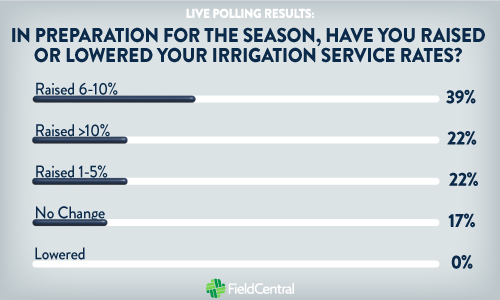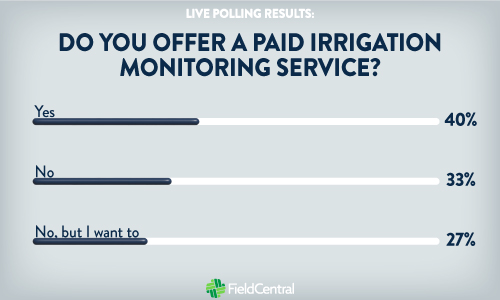
If you think last year was perfect, then you can just stop reading here. But if you think there was more you could do (more revenue, more margin, more time) - even with labor still being tight - then here’s some food for thought.
Customers are still ready to spend money, but inflation (the cost of everything) is a thing. It might not be the dread and gloom that the news was predicting at the end of last year, but it’s definitely chipping away at your profit. It’s also chipping away at the overall amount of installs that might be available in your part of the country. In general, some players are predicting a 20% dip in install jobs… which means you’ll want to make that up, in service.
After speaking with top contractors around both the US and Canada, these are the 8 things they’re going to do about it.
Raise Service Rates
That’s right, raise prices. Again. Depending on what changes you made last year, there’s still room to raise prices again this year. Over the last three years, top contractors have raised their service rates by about 30%... so if you only did small increases over the last two years, you can do another 6%-10% this year.
As always, pay attention to your unique marketing, customer base, and overall business situation.

Offer Midsummer Checks
Now we know your service agreements (you are doing service agreements, right? RIGHT!?) have probably already gone out the door, but that doesn’t mean you can’t add new services. Midsummer checks will get you back on the property, and give you the opportunity to do more service work or sell new upgrades. And if you operate with higher end clients, they may even want more than that… Some contractors have packages that include as much as weekly systems checks!
Rate the Property/System
A simple scorecard for a property or system will yield a ton of future work. If you're in a freeze zone, do this during startups. If you’re not, offer this as an extra service. Rate their system on age, efficiency, and water savings, and do it the easy way… out of 5 stars, or even a “stoplight” method (green/yellow/red). Your techs’ don’t need to “sell,” they can let the scorecard speak for itself. And make sure your field software can help you keep track of these notes and opportunities.
Bill for Drive Time
For real, please do this. Or create some basic geographical zones and have a default “trip charge” (the cost to show up on site) roughly tied to that. It’s a cost of doing business, a big one, and you need to make sure you’re covering those costs! Make sure your billing software has this baked in.
Keep Up with Material Price Changes
Your material cost is going to keep changing, and faster than you’d like. We know it gets busy, and while it probably doesn’t compare to your labor cost, it’s still a huge factor in your profitability. When your distributor has to pass on a price change, so do you. It’s not something your service clients will complain about (they’re always more focused on labor time), and it’s a key way to protect your margin.
Offer Monitoring
You’re going to upsell them on a Wi-Fi controller, so offer a monitoring service too. There are no guarantees here, just that if there’s a “critical issue” you’ll give them a call (during business hours). It’s a great way to create a small amount of side revenue, but also generate more service calls, and if you can solve a few problems for customers remotely, it’s a huge boon to your customer service.

Know Your “Dud” Accounts
Let’s face it, not all of your accounts are profitable. You’re going to have a few duds. Know which ones they are, and cut ‘em loose. Run those reports and find out which accounts are simply not profitable (and not going to be). As one contractor put it, “you have to weigh pressure against capacity.” If you don’t have the capacity, don’t put up with the pressure.
At the end of the day, 2023 will be about efficiency. Use these tools to maximize your service revenue, keep a close eye on your margins, and you’ll make it another great year.







